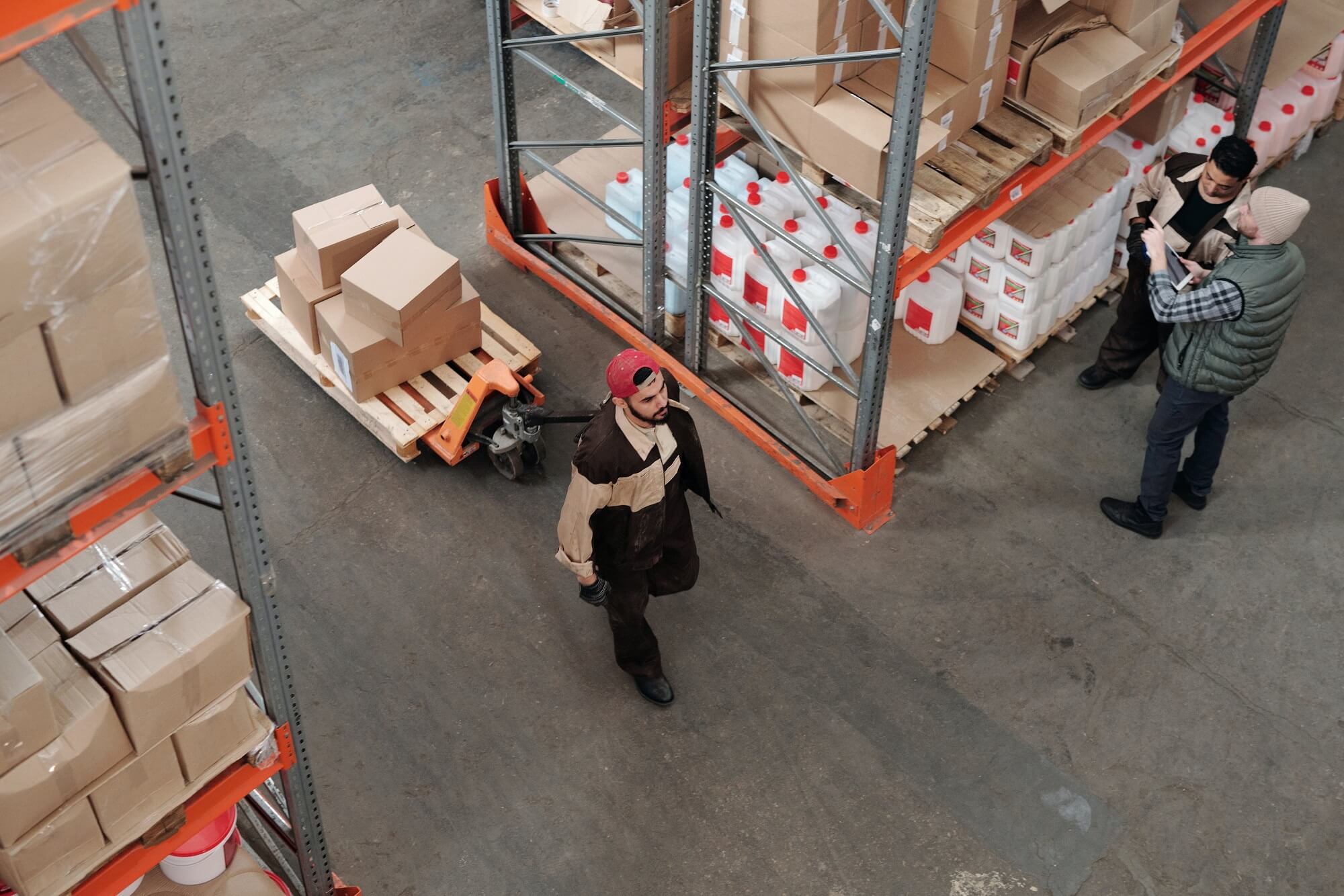Australia’s energy transition isn’t only an energy story—it’s a supply chain story. The organisations that win will secure scarce project inputs today and build the maintenance, repair and sustainment capability to keep new assets running tomorrow.
How Australia’s Energy Transition Will Shape Tomorrow’s Supply Chains
Australia’s energy transition is accelerating investment in new generation, storage, electrification and transmission. It is also creating a new set of supply chain constraints—some obvious today (equipment lead times, contractor capacity, complex logistics), and some that are being underprepared for (maintenance, spares, reliability, and long-term sustainment).
If you lead procurement, supply chain, operations, engineering, asset management, or major projects, you’re likely already feeling it: long lead times in critical categories, constrained specialist contractors, congestion at ports and staging areas, and schedules that look fine until supply chain reality hits.
But the bigger story is what happens next. As the installed base grows, maintenance, repair and sustainment becomes the dominant cost and risk driver. If your operating model and supply chain aren’t designed for sustainment, you don’t just get higher costs—you get reliability and availability problems that can take years to unwind. Build gets the headlines. Sustainment determines whether the transition actually delivers performance.
Why Australia’s energy transition is reshaping supply chains
Every major shift in the economy leaves a footprint in the supply chain. The energy transition’s footprint is unusually large because it changes three things at once:
- What gets built: new generation, storage, transmission, electrified fleets and industrial upgrades.
- How energy is produced and consumed: more variable supply, more electrification, and more distributed assets.
- What must be maintained: a much larger and more complex installed base with specialist parts, new failure modes, and stricter reliability expectations.
This combination is already creating practical supply chain pressure. In many sectors, organisations are feeling the build-phase pinch: long lead times, constrained specialist contractors, complex logistics and more schedule risk than traditional project governance is used to handling.
Yet the most underestimated shift is not in the build. It’s in the operating phase that follows. Once assets are commissioned, sustainment becomes the dominant cost and risk driver. That’s when MRO supply chains move from “back office” to “front page”.
The Australian context: why our supply chain challenge is different
Australia’s energy transition supply chain challenge is not a copy-and-paste of Europe or North America. We face uniquely Australian constraints that shape how the transition plays out on the ground.
Geography and regional delivery
Many transition assets are regional. That brings long transport routes, limited redundancy, weather impacts, variable road access, and fewer local suppliers. It also increases the importance of staging, laydown and careful sequencing—because re-handling and re-work becomes expensive fast.
Constrained domestic manufacturing in specialist categories
For a range of electrical equipment and power electronics, Australia relies on global manufacturing capacity. When global demand rises, the constraint becomes manufacturing slots, testing capacity, and shipping—often outside Australia’s direct control.
Shared labour pools and skills constraints
Energy projects draw on the same pools as mining, utilities, defence, government infrastructure and private construction: electrical trades, engineers, commissioning specialists, project managers, heavy vehicle operators and riggers. Your supply chain plan must include a workforce and contractor strategy, not just a procurement plan.
Social licence and stakeholder engagement
Transmission and regional infrastructure needs community engagement and landholder cooperation. Access, timing and conditions can shift—and schedules that ignore that reality tend to get rewritten later, under pressure.
Extreme weather and resilience planning
Floods, fires and storms don’t just disrupt freight; they disrupt labour availability, site access and supplier operations. Resilience planning is no longer a once-a-year risk workshop. It is part of everyday network and inventory design.
Change drivers: what’s forcing supply chains to evolve
Across Australia, organisations are facing a similar set of drivers. Naming them clearly is the first step to responding effectively.
Driver 1: A surge in infrastructure build and upgrade programs
Many organisations have moved from “a project” to a pipeline: multiple upgrades, multiple sites, multiple connection points, and a long runway of work. This shifts supply chains from project-by-project execution to portfolio delivery capability.
Driver 2: Long lead times and high-consequence categories
In the transition, availability becomes as important as price. Factory capacity, testing, quality assurance and shipping can be the hidden critical path—especially for specialist equipment. The consequence of delay is often much bigger than the cost of the item itself.
Driver 3: Electrification and energy as an operational constraint
As fleets, materials handling equipment, warehouses and industrial processes electrify, energy becomes a capacity constraint rather than a simple overhead. Site power capacity, upgrade pathways, charging infrastructure and operating schedules begin to shape cost-to-serve and service reliability.
Driver 4: Increased expectations for transparency and sustainability
Customers, investors and governance bodies are increasingly looking for credible progress on supply chain emissions, traceability and risk. That translates into supplier data requirements, stronger procurement governance, and new metrics.
Driver 5: Resilience expectations and reputational risk
Reliability is becoming non-negotiable. When outages or delays occur, the consequences include service disruption, safety exposure, financial penalties and reputational damage. Supply chain resilience is moving from “insurance” to “core design input”.
How supply chains are changing due to the energy transition
Below are the most important shifts we’re seeing across procurement, logistics, inventory, planning and operating models.
1) Procurement is shifting from lowest price to secure, serviceable, compliant
Traditional procurement approaches work well for stable categories. The energy transition introduces categories where lead times are long and variable, substitutions are difficult, and quality failures have higher consequences.
This is changing procurement in three ways:
- Category strategies matter more than purchase orders.
- Supplier qualification matters as much as negotiation.
- Whole-of-life value matters more than capex price.
In practical terms, procurement teams are being asked to manage technical risk, delivery risk, and sustainment risk—often without the governance, data and cross-functional alignment to do it consistently.
2) Logistics is becoming heavier, more complex, and more regional
Transition programs change the freight profile. Many assets require heavy haulage, abnormal loads, specialist lifting, staged deliveries and laydown yards. Delays in site readiness can push equipment into storage and re-handling, increasing damage risk and cost.
Logistics planning becomes end-to-end orchestration:
- ports-to-site movement planning
- staging and laydown design
- sequencing aligned to installation readiness
- packaging and damage-prevention standards
- contingency routes and recovery plans
3) Inventory profiles are shifting toward critical spares and rotables
As new assets come online, inventory moves beyond project materials. Organisations need to manage:
- high-value critical spares with long replenishment lead times
- rotable components requiring repair pipelines
- specialist tooling and consumables
- increasing obsolescence risk in electronics and vendor platforms
Without a deliberate MRO strategy, organisations drift into an expensive pattern: overstock some items, understock the critical ones, and rely on emergency procurement during outages.
4) Planning cycles need to tighten and become more integrated
Uncertainty increases the value of strong planning. The organisations that perform well connect demand, supply, capital works, workforce and financial outcomes into an integrated planning cadence. This often requires uplifting S&OP and IBP, and connecting project pipelines to operational readiness.
5) Supplier ecosystems are being rationalised and professionalised
Fragmented supplier bases create variability, weak accountability, and higher compliance risk. In transition-critical categories, organisations are increasingly moving toward a smaller number of strategic partners with clearer performance expectations and stronger governance.
6) Data handover and asset information management are becoming mission-critical
A recurring failure mode is poor handover from projects to operations. Missing bills of material, unclear warranties, incomplete commissioning records, and inconsistent asset hierarchies create a hidden cost that shows up later in downtime, maintenance delays and poor parts availability.
7) Maintenance supply chains are becoming a strategic capability
As the installed base grows, the maintenance supply chain becomes a strategic capability that influences reliability, cost, safety and service outcomes. This includes spares strategies, repair pipelines, service contracts, workforce models, and predictive maintenance integration.
Today vs tomorrow: what’s required now, and what’s required next
Many organisations are heavily weighted toward “build and connect” today. That makes sense—because the build phase is visible, urgent and funded. But the transition will increasingly be judged on reliability and long-term performance. That requires building sustainment capability in parallel.
What’s required today (0–3 years): set-up, acquisition and delivery
- Secure long-lead and constrained equipment categories.
- Lock in supplier capacity and quality assurance pathways.
- Build portfolio-level procurement and logistics governance.
- Design and operate staging and laydown to reduce congestion and damage risk.
- Embed maintainability and serviceability criteria into procurement decisions.
- Establish asset data and handover standards before commissioning.
- Build realistic schedules that reflect supply chain and access constraints.
What’s required tomorrow (3–20+ years): MRO, maintenance and sustainment
- Design spares strategies based on criticality and lead times.
- Build rotable pools and repair pipelines to reduce downtime.
- Professionalise maintenance planning and reliability capability.
- Implement service contracting models aligned to performance outcomes.
- Manage obsolescence risk and replacement roadmaps early.
- Design sustainment networks: spares hubs, service coverage, repair partners.
- Develop workforce models for field service and maintenance at scale.
Key message: Build-phase decisions lock in sustainment outcomes. If you don’t plan for MRO and maintenance today, you inherit cost and reliability issues tomorrow.
What organisations should do now: practical actions for the next 6–18 months
Here is a practical response plan designed for Australian conditions. These actions reduce schedule risk today while building the foundations for sustainment.
1) Build a transition supply chain exposure map
Start with clarity. Map your exposure across assets, sites, categories and constraints:
- Which assets are being built, upgraded or electrified?
- Which categories are long lead, constrained, or high consequence?
- Where are the likely bottlenecks (manufacture, testing, shipping, port handling, inland transport, site access, commissioning)?
- Which suppliers or lanes are single points of failure?
- Which sites have energy capacity constraints or limited access?
The output should be something leaders can read in five minutes: a heat map of risks, a shortlist of opportunities, and a prioritised action list.
2) Create a long-lead register with a governance cadence
Long-lead items deserve discipline. A practical approach includes:
- clear ownership across procurement, engineering and delivery
- agreed lead time assumptions with confidence bands
- quality and inspection gates (including acceptance testing where relevant)
- expediting protocols and escalation pathways
- contingency plans (substitution, alternates, strategic stock)
3) Upgrade critical procurement into true category strategies
For critical categories, “buying” is not enough. Build category strategies that include:
- technical specification governance (engineering + procurement alignment)
- supplier qualification and capability assessment
- contract models aligned to risk (not one-size-fits-all)
- whole-of-life scoring (serviceability, parts availability, warranties, data access)
- supplier performance management and joint planning cadences
4) Design logistics and staging as part of your delivery model
Reduce re-handling, congestion and damage risk by designing logistics early:
- ports-to-site movement plans with realistic capacity assumptions
- staging and laydown strategy (location, security, storage conditions)
- packaging and damage-prevention standards
- sequenced deliveries aligned to installation readiness
- contingency routing and recovery plans
5) Build supplier performance management that changes outcomes
Supplier performance governance must be operational:
- define clear metrics (delivery reliability, quality, documentation, responsiveness)
- hold regular performance cadences with actions and owners
- use escalation pathways and levers when required
- reward reliability and transparency, not just headline pricing
6) Set asset data and handover standards before the first delivery arrives
Make handover a requirement, not an afterthought. Define minimum standards for:
- asset registers and hierarchies
- bills of material (including manufacturer part numbers and alternates)
- warranty terms, boundaries and claims processes
- commissioning results and acceptance documentation
- maintenance manuals and training requirements
- spares lists and recommended holdings
- access to monitoring/diagnostics data and ownership rights
7) Align build decisions to whole-of-life value
Whole-of-life thinking prevents expensive surprises. Ensure decisions consider:
- local service coverage and technician availability
- parts lead times and supply certainty
- repairability and refurbishment options
- interoperability and data access
- obsolescence risk and upgrade pathways
8) Build workforce and contractor strategies into supply chain plans
Many delays are ultimately labour delays. Make workforce a first-class planning variable:
- forecast capability needs across delivery and sustainment
- identify scarce roles and develop sourcing strategies
- plan for regional coverage and travel requirements
- define contractor models with clear accountability and performance measures
9) Improve visibility with practical dashboards
You don’t need perfect data to make better decisions. Start with visibility across:
- long-lead status and confidence
- supplier delivery and quality performance
- logistics milestones and staging constraints
- critical risks and mitigation actions
10) Create the first version of your sustainment blueprint now
Even during build, set the sustainment blueprint early:
- critical spares philosophy and service targets
- repair vs replace approaches for key components
- service contracting principles and accountability
- sustainment network concepts (regional hubs vs centralised)
- asset data requirements to enable maintenance and reliability
How to prepare for tomorrow: MRO, maintenance and sustainment supply chains
As the transition progresses, success will be judged on reliability and uptime. That puts MRO supply chains at the centre of performance.
1) Segment assets by criticality and consequence of failure
Use a simple model that considers safety, outage impact, lead time to replace, and detectability. This determines what you stock, where you stock it, and what service levels you require.
2) Design spares strategies deliberately (not as a “buy more spares” reaction)
A robust spares strategy balances availability and total cost through:
- critical spares held locally where downtime consequence is high
- rotable pools with defined repair turnaround times
- vendor-managed inventory for selected consumables where it reduces waste
- clear reorder parameters and governance
- obsolescence controls and end-of-life planning
3) Build repair pipelines and refurbishment capability
Repair capability reduces dependency on long lead replacement parts and improves resilience. Even when repairs are outsourced, you need defined processes, partners, turnaround times and quality assurance.
4) Professionalise maintenance planning and scheduling
Maintenance success is largely planning success. Mature sustainment environments have:
- standardised job plans and maintenance philosophies
- clear backlogs and prioritisation rules
- integrated planning of people, parts and downtime windows
- feedback loops to improve plans based on outcomes
- reliable reporting on schedule compliance and failure patterns
5) Apply predictive maintenance where it pays (targeted, not universal)
Predictive maintenance is most valuable for high-consequence assets where failure modes are detectable. The question is not “can we monitor it?” but “can we act on it?”. A predictive program requires capability across data, work management and parts availability.
6) Design service contracts for performance outcomes
High-consequence assets need service agreements that include clear response times, parts availability expectations, escalation paths, and performance measures with consequences. Vague “support agreements” tend to fail when you most need them—during outages.
7) Build an obsolescence and replacement roadmap early
Electronics and vendor platforms can have shorter lifecycles than physical infrastructure. An obsolescence roadmap prevents rushed replacements and helps align upgrades to planned maintenance windows.
8) Design the sustainment network for Australia’s geography
Where spares sit and how service coverage works is a network decision. Consider:
- regional spares hubs vs centralised holdings
- response time requirements and access constraints
- local repair partners vs OEM pathways
- reverse logistics for failed components
- mobile service models and technician deployment
9) Build the sustainment workforce model
As the installed base grows, sustainment becomes a scale challenge. Plan for:
- skills and certifications
- regional coverage and roster models
- contractor vs in-house mix
- training and capability uplift
10) Make reliability a shared KPI across procurement, operations and suppliers
Reliability is not solely an engineering outcome. It is shaped by procurement choices, parts strategies, supplier service models, and operational discipline. Align incentives and governance so reliability is owned across functions.
KPIs that matter in the energy transition supply chain
Traditional KPIs still matter. But transition-ready organisations add metrics that reflect lead time risk, quality, sustainment and resilience.
Build and acquisition KPIs
- Schedule risk on long-lead items (confidence-based tracking)
- Supplier on-time in-full delivery with root cause tracking
- Quality non-conformances and defect rates
- Logistics damage incidents and re-handling frequency
- Staging dwell time and cost of congestion
- Documentation completeness at handover
MRO and sustainment KPIs
- Asset availability and reliability measures (where applicable)
- Maintenance schedule compliance
- Spare parts service level (fill rate for critical items)
- Repair turnaround time for rotables
- Critical stockouts and outage impact
- Obsolescence exposure (parts at end-of-life)
- Whole-of-life cost trends (capex + opex + downtime cost drivers)
Common pitfalls to avoid
Pitfall 1: Treating transition procurement like routine procurement
Critical categories need category strategies, supplier qualification and performance governance. Otherwise you end up with reactive expediting and quality fixes.
Pitfall 2: Building assets without defining sustainment requirements
If maintainability, parts availability, warranty clarity and data handover aren’t embedded early, the organisation inherits avoidable downtime and cost.
Pitfall 3: Underestimating logistics and staging constraints
Ports-to-site logistics, heavy haulage and regional access often become hidden critical paths. Design logistics early to reduce re-handling, damage and congestion.
Pitfall 4: Poor project-to-operations handover
Missing BOMs, incomplete documentation and unclear warranties create a hidden tax that shows up as downtime, overstock, stockouts and slower repairs.
Pitfall 5: Waiting until failures occur to build an MRO model
Sustainment capability takes time. If you delay, reliability deteriorates as the installed base grows.
How Trace Consultants can help
The challenges above sit across strategy, procurement, planning, operations, sustainability and asset sustainment. They are cross-functional by nature. Trace Consultants helps Australian organisations navigate this complexity by combining evidence-led analysis with practical implementation support.
Supply chain strategy and network design
- transition readiness assessments and exposure mapping
- network modelling and scenario planning (cost, service, resilience)
- site strategy and footprint planning (including spares hubs and staging yards)
- operating model design linking projects to operations
- business cases and investment roadmaps that stand up to executive scrutiny
Strategic procurement and critical category management
- category strategies for long-lead and high-consequence categories
- supplier qualification, panels and framework agreement set-up
- contracting models aligned to schedule, quality and service risk
- supplier performance governance and escalation pathways
- whole-of-life procurement criteria (serviceability, parts availability, warranties, data access)
Planning and operations uplift (S&OP and IBP)
- planning maturity assessments and capability uplift
- integrated planning connecting capex delivery to operational readiness
- constraint management and scenario planning
- executive governance rhythms and decision-quality reporting
MRO supply chain design and sustainment planning
- spares criticality frameworks and stocking strategies
- rotable pool design and repair pipeline set-up
- service contracting models and SLA design
- obsolescence and replacement roadmaps
- asset data and handover standards to enable reliability
Resilience, risk and sustainability embedded in supply chain decisions
- supply risk assessments and practical mitigation planning
- continuity planning aligned to operational reality
- supplier transparency approaches that are scalable
- decision frameworks balancing cost, service, risk and sustainability
Most importantly, Trace supports implementation—helping organisations move beyond recommendations to changes that stick in day-to-day operations.
A practical roadmap: what to do in 90 days, 12 months and 3 years
Next 90 days: stabilise and prioritise
- build a transition supply chain exposure map (assets, categories, sites, constraints)
- identify top risks and opportunities with owners and actions
- establish a long-lead register and governance cadence
- define asset data and handover standards for projects underway
- agree decision principles: cost, schedule, safety, reliability, maintainability
Next 6–12 months: secure supply and design sustainment
- develop category strategies for critical inputs and establish supplier panels where appropriate
- implement supplier performance governance that drives actions
- design MRO strategies: spares criticality, stocking policies, rotables and repair pipelines
- design service contracting models with performance outcomes and accountability
- uplift planning maturity to connect capex delivery and operational readiness
- confirm sustainment network decisions (spares locations, service coverage, repair partners)
Next 12–36 months: industrialise, digitise and scale
- standardise asset platforms where feasible to reduce parts variety and dependency
- improve visibility through performance dashboards and analytics
- expand predictive maintenance where it improves outcomes
- build refurbishment and repair pathways to reduce lead time risk
- strengthen sustainment workforce models for scale and regional coverage
- embed benefits tracking so performance improvements don’t leak over time
FAQs
Does this matter if my organisation isn’t in the energy sector?
Yes. Even if you’re not building energy infrastructure directly, you may be impacted through shared constraints: competition for contractors, logistics capacity, specialist equipment categories, and changing energy cost and availability. Expectations around transparency and resilience are also rising across value chains.
What’s the biggest mistake organisations make right now?
Optimising for build only. Build decisions lock in serviceability, warranty outcomes, spare parts profiles and long-term maintenance costs. If sustainment isn’t designed early, organisations inherit avoidable downtime and higher whole-of-life costs.
What should procurement teams change first?
Start by identifying critical categories and moving from tactical buying to category strategies: supplier qualification, long-lead governance, contracting aligned to risk, and whole-of-life scoring that includes maintainability and parts availability.
How do we avoid being locked into poor technology choices?
Embed whole-of-life criteria early: service coverage, parts lead times, repairability, warranty clarity, data access, interoperability and obsolescence pathways. These are often more important than marginal differences in capex pricing.
What should operations and asset teams ask for at handover?
At minimum: complete bills of material, warranty boundaries and claims processes, commissioning and acceptance records, maintenance manuals, recommended spares lists, and access to monitoring and diagnostics data.
Build is urgent, sustainment is decisive
Australia’s energy transition will reshape supply chains across the economy. Right now the pressure is on set-up and acquisition: securing equipment, contractors and delivery windows. But the next competitive advantage is already forming. The organisations that build sustainment supply chains early—spares strategies, repair capability, service contracting, workforce models and data discipline—will deliver better reliability, lower whole-of-life cost, and fewer unpleasant surprises as the installed base grows.
If you want a practical view of what this means for your supply chain, and a roadmap that is defensible commercially and operationally, Trace Consultants can help you prioritise actions, design the right operating model, and implement changes that deliver measurable performance—today and for the long run.













